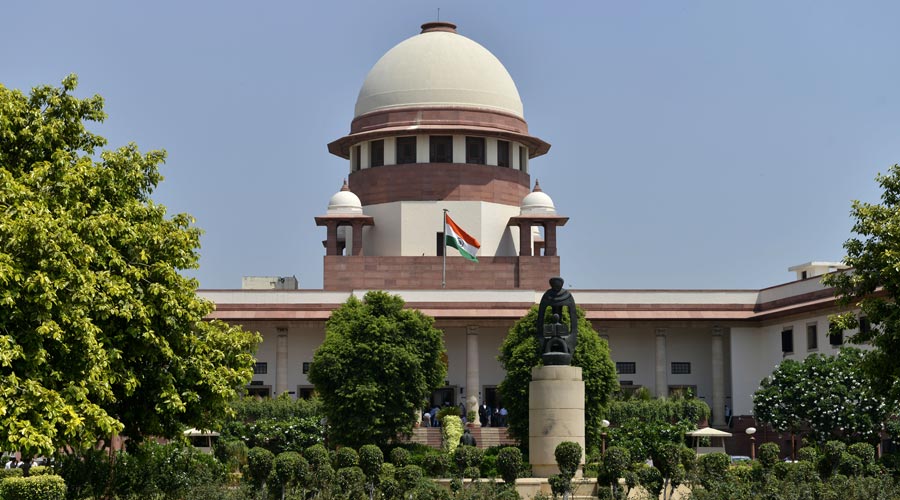The Supreme Court on Thursday agreed to reconsider its own judgment which had upheld the overarching powers of the ED to arrest, seize and confiscate alleged tainted properties under PMLA (Prevention of Money Laundering Act), 1988.
The apex court said the Act, in general, was “noble” and enacted to deal with a “serious crime” such as money laundering. A special bench of Chief Justice N.V.Ramana, Justice Dinesh Maheshwari and Justice C.T.Ravi Kumar issued notice to the Union government on two issues relating to non- furnishing of ECIR (Enforcement Case Information Report) and reversal of the presumption of innocence. ECIR is on a par with FIR registered by police.
Similarly in criminal law jurisprudence, there is always a presumption of innocence of the accused, unless it is rebutted by unimpeachable evidence by the prosecution. But in PMLA there is a reversal of the presumption of innocence. In other words, the accused once arrested has to prove his innocence beyond doubt, thus shifting the burden of proof from the ED to the accused.
Chief Justice Ramana said the court was primarily concerned with two issues “which require reconsideration are not providing the copy of ECIR to the accused and reversal of presumption of innocence”. “Mr Mehta (solicitor-general Tushar Mehta), there is no need for any elaborate arguments in this matter. We three (judges) feel that there are two aspects which may be necessary to relook into the judgment (July 27 original verdict),” Chief Justice Ramana observed.
The bench was dealing with a review petition filed by Congress MP Karti Chidambaram, challenging the apex court bench’s July 27 verdict upholding the constitutionality of various provisions relating to the Act which according to observers is being increasingly used against those critical of the government and political opponents. Solicitor-general Mehta argued against any recall of the judgment.
Defending the Act, Mehta said: “We are part of a global structure and our law will have to be in tune with the larger global structure and we have explained that. The hon’ble bench (earlier bench) has been very kind and has agreed that our law is not only in tune with that structure but also our constitutional goals.”
The solicitor-general further said the country cannot deviate from the global objective of eradicating money laundering as it would otherwise hurt India’s economy. “Any deviation would risk India as a nation and we will not be able to get certain financial assistance,” he said.
Mehta said the notice should be limited to these two issues which the court has highlighted. He also argued that the review is not maintainable. The bench proceeded to issue a notice on the review and listed the matter after four weeks.
Karti Chidambaram has sought a review of the apex court’s controversial July 27 judgment upholding the constitutionality of the Prevention of Money Laundering Act 2002 relating to overarching powers of the Enforcement Directorate (ED) including stringent bail conditions and “search, seizure, summoning and arrest” powers.
The judgment had drawn considerable flak as it had come at a time the NDA government has been using the ED and the PMLA, particularly against those belonging to the opposition parties which have accused the government of misusing the agency for political gains.
A host of top opposition politicians, including Congress leaders Sonia Gandhi, Rahul Gandhi, P. Chidambaram, his son and MP Karti Chidambaram, Shiv Sena’s Sanjay Raut, TMC MP Abhishek Banerjee and Delhi minister Satyendar Jain, are among those under the ED’s lens. Justice Khanwilkar who headed the bench and had authored the judgment had since retired on July 29. Karti has challenged the judgment in are view petition.











